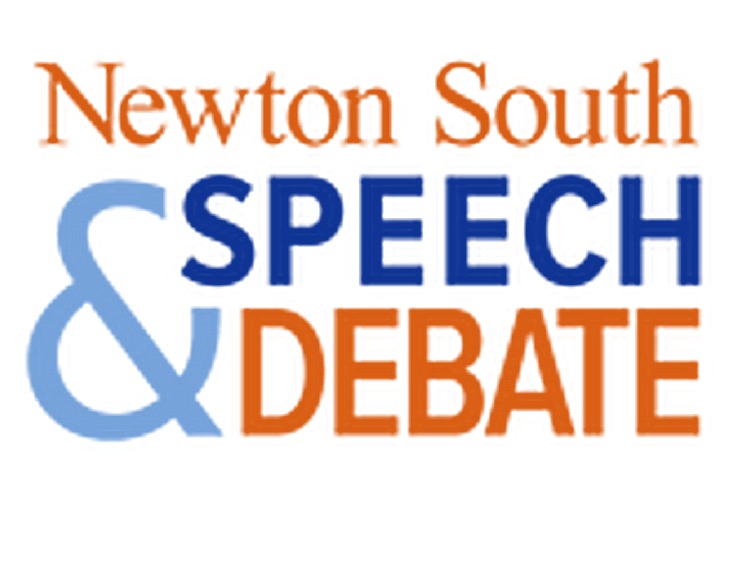On Sunday March 26, the Newton South HS debate team won the Massachusetts state debate championship at the conclusion of the 3-day tournament. Fig City News interviewed their coach, Josh Cohen, a parent volunteer who has coached the team since 2014. Josh is also Chair of Debate for the Massachusetts Speech and Debate League.
The interview below was conducted via telephone, and the transcription is condensed from the author’s notes.
FCN: For our readers who are unfamiliar with competitive debate, can you describe it?
JC: The state championship utilizes Public Forum debate. A debate round has two teams competing against each other, with two debaters on each side. They debate a Resolution, for example: “Should the Republic of India join the Artemis Accords?” Other examples include “does right-to-work do more harm than good?”, or “is the cost of a college degree worth it?”
Before each debate, there’s a coin flip to determine which side defends which position. Therefore the teams have to prepare for each side of a debate. The two teams present their position, rebuttals, and make speeches which go back and forth. For most rounds, there’s one judge who must put aside personal opinions to declare a winner, however advanced rounds can have panels of three judges.
There are several qualifying rounds followed by elimination rounds. A debate competition could have 30 two-person teams up to a few hundred. Each debate lasts 45-60 minutes. There are two divisions at the state level: varsity and novice. Newton South HS won both levels at the state championship this year.
There’s a documentary called Girl Talk that features the Newton South debate team. The filmmaker followed the debate team for four years. Debate has been historically dominated by boys, however Newton South for many years has had a strong female presence and a strong national profile.
FCN: Do the debates ever get heated?
Yes, in between each speech is a cross-examination period, which is bi-directional. Sometimes debaters get aggressive, which is good-natured almost all the time.
FCN: How many students are on the Newton South HS debate team?
JC: Close to 60 students.
FCN: Are there enough events to get them all “playing time”?
JC: Yes, we brought 52 students (26 teams) to the state tournament. Some tournaments are more selective, but there are a fair number of opportunities. A total of 119 pairs (238 students) competed in the state tournament.
FCN: Do students need to try out to get on the team?
JC: Kids are choosing between spending time on debate or other activities. We may start out with 30 or more “novices” (beginners) in the beginning of the year, but by the end have 20 or so who stuck with it.
FCN: Are there students with English as a second language?
JC: I don’t know, but we certainly have students who are bilingual. A lot of languages are spoken.
FCN: How did you get involved?
JC: Debate is part of Speech and Debate. The faculty coach is Sarah Culpepper, who also supervises speech practice. I was on the Lexington High School debate team. My son and daughter are both Newton South High School Class of 2014, and there was no debate coach when they were there.
Parents get involved because each team needs to bring a judge for every two debate teams. Therefore we needed to bring 13 parents for the 26 teams at the state tournament.
FCN: Is there any betting or gambling on outcomes?
JC: Not legally.
FCN: Where does the Newton South team go from here?
JC: There are a series of national championship tournaments. Our team that won the state championship will go onto the Tournament of Champions, located in Lexington Kentucky. Another of our teams is going to the National Catholic Forensic League championships in Louisville, Kentucky.
FCN: What is it about Kentucky and debating championships?
JC: The University of Kentucky at Lexington has been debating for many years. Newton South has won the Tournament of Champions there in the past.
FCN: Is there anything else you would want the community to know?
JC: Debate is an important activity for critical thinking. Students make friends and receive mentoring. If the team succeeds, it’s because our kids made it succeed.







